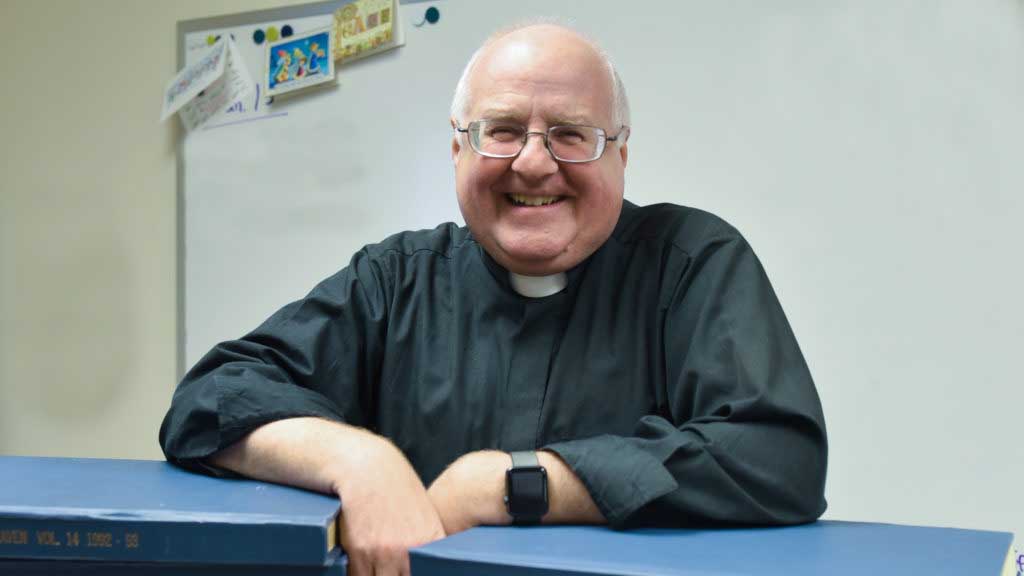
by Father Mark Goldasich
“Why do you have two?”
After 40 years, these five words still stick with me. They were spoken by a young Kikuyu boy in his native language when I was a deacon working for several months in Kenya, East Africa. All the while, he was pointing at me.
Of course, I didn’t understand exactly what the boy was saying, even after my guide Onesimus translated the words into English for me. With a smile, he clarified, “Deacon Maliko, the boy wants to know why you have two pens?”
It was then that I realized the boy was pointing, not at me, but at the pens in my shirt pocket. My natural response would have been that I always carry two pens, just in case one doesn’t work.
But that innocent question touched me on a much deeper level: Why, indeed, should I have two pens when this little boy had none?
Over the years, I’ve written a number of times about my mission time in Kenya because it touched me so deeply. I learned so much in those months — about myself, about people and about the world. I suspect that anyone who has done any sort of mission work, for whatever length of time, is changed by the experience.
Pope Francis speaks often about a “culture of encounter.” While it’s critical and compassionate to donate money and materials to charitable organizations, meeting those who are served, in person, is a powerful and transformative experience.
Don’t miss reading the story on pages 7-9 of this week’s Leaven. It highlights not only the tremendous service that Uplift is doing in Kansas City, but also how those who are involved in this ministry are deeply touched by it. These face-to-face encounters literally “give a face” to those being served. They are no longer just “the homeless,” but rather “people who are homeless.”
This reminded me of something I’d just read in Pope Francis’ recent book “Let Us Dream: The Path to a Better Future.” In it, he describes the “cartoneros” in his native Argentina, “men and boys who scour the streets at night in search of cardboard and other materials that they sell to recyclers.”
The pope then describes how he joined the “cartoneros” one night while he was the cardinal of Buenos Aires:
“I went dressed in civilian clothing and without my bishop’s pectoral cross; only the leaders knew who I was. I saw how they worked, how they lived off the city’s leftovers, recycling what society discarded, and I saw, too, how some elites regarded them as leftovers themselves. . . . I could see the city through their eyes and experience the indifference they suffered, that indifference that turns into a well-mannered, silent violence.
“I saw the face of the throwaway culture. But I also saw the dignity of the ‘cartoneros.’”
So many of us, sadly, have that “indifference that turns into a well-mannered, silent violence.” With the season of Lent on the horizon, perhaps one resolution can be to work on reducing that indifference that causes us to treat others as leftovers.
It could start simply by spending time scouring our closets — and our wallets — to donate to worthwhile organizations such as Uplift and Catholic Charities.
But if we’re really serious about living a “culture of encounter,” do we dare to volunteer our time and talents to help these organizations as they minister face-to-face?
It’s dangerous work, though — prejudices will be shattered, bridges will be built and hearts will be changed.
And you’ll probably never feel comfortable carrying around two pens ever again.

